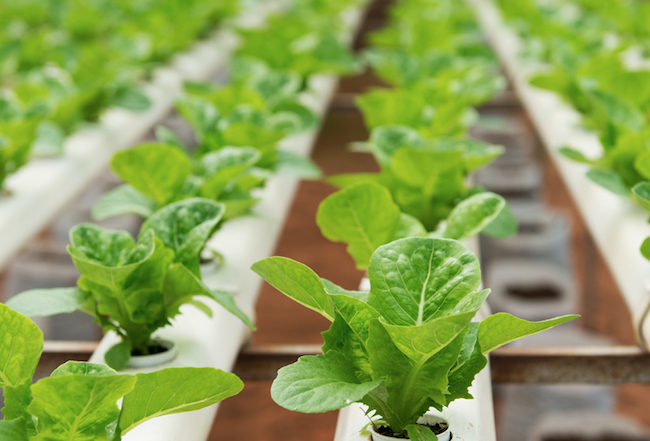
EXCLUSIVE: Patagonia Provisions launches its Marketplace, Specific Emphasis on Regenerative and Community
Due to COVID-19, Patagonia announced on March 13th that it would temporarily close all of its retail stores in North America, including orders on its website, until further notice. However, the company’s food division, Patagonia Provisions, remains open.
—
At the end of 2018, Patagonia founder Yvon Chouinard and CEO Rose Marcario informed their employees that the company’s mission statement had changed to: “Patagonia is in business to save our home planet.”
And just as these two iconic leaders hoped, this move had a profound impact on their business. Among many other things, it ended up influencing the direction of the company’s e-commerce strategy for its food division, Patagonia Provisions.
Whereas most organic food brands would never consider selling other companies’ products on their own websites, Patagonia Provisions came to a very different conclusion.
“This mission statement recalibrated how we operate our business and brought a huge sense of urgency,” said Birgit Cameron, Managing Director at Patagonia Provisions. “As a planet, we do not have time to wait, and we can’t do this by ourselves — with the farmers, fisherman and ranchers we work with for our own products. So, we asked, ‘Who else is out there?’ What are the things we need to do in order to move things farther and faster?’ It was clear to me that it made sense to do this together.”
Doing this together meant opening up the Patagonia Provisions’ website and selling products of other organic brands that are also committed to soil health, animal welfare and social fairness — the three pillars of the Regenerative Organic Certification (ROC). ROC is the new regenerative organic standard started by the Regenerative Organic Alliance, of which Patagonia, along with Dr. Bronner’s and Rodale Institute, is one of the three primary founders.
Since there are so few ROC-certified products right now and the process to get ROC certification can take a while, the decision was made that certification would not be a requisite to get on the site. However, if a brand is not ROC-certified, having it be a part of this ecosystem will certainly encourage the company to pursue certification.
By the end of June, the store is expected to have up to 120 different non-Patagonia Provisions’ products, and new ones are now being added on a daily basis. The goal is to have a wide and accessible range of organic options, including pastas, sauces, lentils, oils, grains, beans, coffee, baby food, snacks and more.
Opening up the Patagonia Provisions website to other brands is a very smart move, largely because it gives ROC an important consumer-facing presence. For shoppers who understand the value of ROC, this marketplace provides a highly curated, one-stop-shop to find ROC-certified products or those that are similar in quality. Additionally, once Patagonia puts its full resources behind this initiative and the site really starts to gain traction, it will become another important selling point for ROC certification.
MORE THAN COMMERCE
There is no question that driving sales for these products is a priority for Patagonia. However, the plan is much more than having an e-commerce business.
It is about creating community, bringing people together and explaining the vital importance of regenerative organic agriculture for our planet. One way Patagonia will accomplish this is by leveraging its expertise in video storytelling to showcase its selected brand partners.
Just as ROC is set to become the new gold standard in organic, the Patagonia Provisions’ marketplace has similar aspirations.
“Our point of differentiation is that we are taking things a little farther. This is not about conventional organic, which, in many regards, is becoming monoculture agriculture. Rather, it is about regenerative and restorative organic that emphasizes soil health, animal welfare, social fairness and nutrition. For us, there is a big mission attached to this,” said Birgit Cameron.
 |
With gratitude, 
Max Goldberg, Founder |
Quick Hits
* Coronavirus is threatening the entire restaurant supply chain.
* Panera Bread is now selling groceries.
* In Europe, milkmen are deluged with orders.
* Numi Organic Tea has pledged to go carbon neutral by 2023.
* This entrepreneur in India sources organic food from 40,000 farmers and sells his products in more than 21 countries.
* Lastly, a shout-out to a few friends:
* Walter Robb, the former Co-CEO of Whole Foods and a truly beloved figure in the industry, had a very bad case of COVID-19 and was hospitalized. Fortunately, he is back home and recovering. So happy and relieved to hear this.
* Carla Vernon, President of the Natural & Organic Operating Unit at General Mills, announced that she has ended her 21-year tenure at the company and is stepping down, effective April 10th. Her bright light and voice of truth will be severely missed, and she was an incredible leader for General Mills’ organic and regenerative initiatives. No word about what is next for Carla, but my prediction is a big CEO job.
* Brendan Davison, founder of Good Water Farms in Bridgehampton, New York, announced on Instagram that he was closing down. Brendan produced phenomenal organic and Biodynamic microgreens that went to Whole Foods, Baldor and many of NYC’s top farm-to-table restaurants. Great guy, fantastic farmer, very sad to see him go. I wish him the best.
New Organic Products
Avocado Oil from Nutiva
Made from ethically-sourced, regeneratively-farmed avocados in Ethiopia, Nutiva has introduced organic avocado oil. It is available in three varieties – Organic 100% Pure Avocado Oil, Organic MCT Oil Blend Avocado Oil and Organic Extra Virgin Avocado Oil – and the new products are available in 12-oz. pouches. Non-GMO Project Verified, Keto Certified and vegan.Electrolyte-Infused Popcorn from lytepop
Who knew that you could eat a snack that would actually aid in hydration? Apparently, lytepop did. The company has come out with an organic, electrolyte-infused popcorn. 70 calories per bag, gluten-free.Watermelon Mint Sparkling Yerba Mate from Clean Cause
The newest flavor from Clean Cause's line of sparkling yerba mate is watermelon mint. It contains 160mg of natural caffeine and only 60 calories per can. The company donates 50% of its profits to support recovery from drug and alcohol addiction. As someone who is 21 years sober, I absolutely LOVE this.
Weekly News Summaries


Risk of E. Coli in Hydroponic and Aquaponic Systems May be Greater than Once Thought
By Brian Wallheimer
Hydroponics and aquaponics -- two growing methods that many people believe are illegal in organic -- may now have some real food safety concerns.

Cambridge Commodities acquires Ingredient Business of Ultimate Superfoods
By Elizabeth Green
With its previous acquisition of Earth Circle Ingredients in 2018, Cambridge Commodities continues to build its foothold in the U.S.

Kroger sees March Identical-Store Sales Jump 30% Due to Coronavirus
By Russell Redman 1
Kroger said customer behavior began changing in the last few days of February, as shoppers stepped up purchases of sanitizer, cleaning products, water, paper goods, boxed meals and health-related products.


EPA Sidesteps Normal Public Process to Approve BASF’s Cancer-Linked Pesticide
By Jonathan Hettinger
The EPA just announced that soybean farmers in 25 states are now able to spray a pesticide that the agency has determined is likely to cause cancer and can drift hundreds of feet from where it is applied.

USDA announces it Will Revisit Country of Origin Labeling
By Sam Bloch
Since 2016, meat that comes in from other countries and labeled as “Made in the U.S.A.” has been allowed. That may soon change.

Nevada Governor includes Health Food Stores in Business Closures
In a move that defies logic, Gov. Steve Sisolak has included health food stores among businesses closed during coronavirus closures.


Coronavirus Measures Could Cause Global Food Shortage, UN Warns
By Fiona Harvey
Protectionist policies and shortage of workers could see problems start within weeks.
Is This the Start of a CSA Boom?
By Tove Danovich
While restaurants and other small businesses throughout the country are temporarily closing, community-supported agriculture subscriptions or one-off box deliveries of local food are skyrocketing in demand.

Europe Reveals Data on Pesticide Residues in Food
By Joe Whitworth
Table grapes and peppers were among products that most often exceeded residue limits in random testing.

Mexico includes Native Corn as National Heritage, Passes Law To Prevent ‘Intellectual Plundering’
By Amy Santiago
Mexico's Senate recently passed a federal law to promote and protect native corn.
Want to share this newsletter on social media? You can use this link: Newsletter Link
The material in this newsletter is copyrighted and may be reprinted by permission only. All requests must be in writing. Please use our contact form to request republication rights.
Newsletter Archive
Quick Hits
* Coronavirus is threatening the entire restaurant supply chain.
* Panera Bread is now selling groceries.
* In Europe, milkmen are deluged with orders.
* Numi Organic Tea has pledged to go carbon neutral by 2023.
* This entrepreneur in India sources organic food from 40,000 farmers and sells his products in more than 21 countries.
* Lastly, a shout-out to a few friends:
* Walter Robb, the former Co-CEO of Whole Foods and a truly beloved figure in the industry, had a very bad case of COVID-19 and was hospitalized. Fortunately, he is back home and recovering. So happy and relieved to hear this.
* Carla Vernon, President of the Natural & Organic Operating Unit at General Mills, announced that she has ended her 21-year tenure at the company and is stepping down, effective April 10th. Her bright light and voice of truth will be severely missed, and she was an incredible leader for General Mills’ organic and regenerative initiatives. No word about what is next for Carla, but my prediction is a big CEO job.
* Brendan Davison, founder of Good Water Farms in Bridgehampton, New York, announced on Instagram that he was closing down. Brendan produced phenomenal organic and Biodynamic microgreens that went to Whole Foods, Baldor and many of NYC’s top farm-to-table restaurants. Great guy, fantastic farmer, very sad to see him go. I wish him the best.




